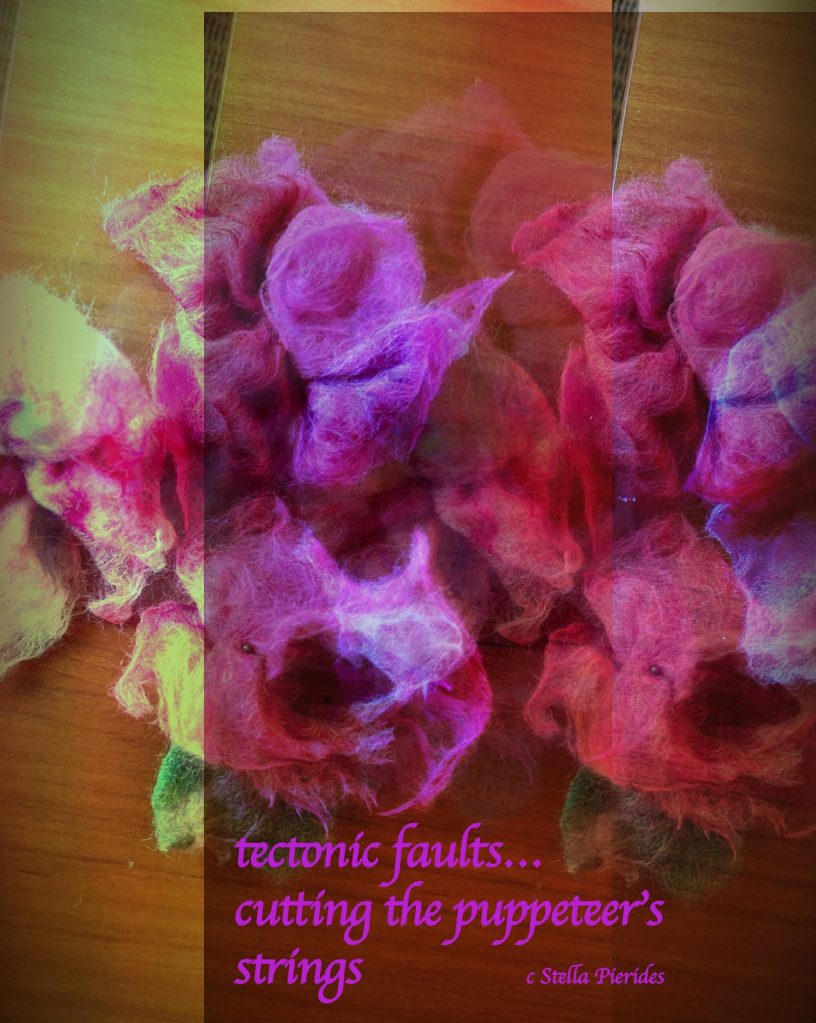selfie flash of my dissolving ha ha
Happy to see my wee ku, monoku, in today’s dadakuku, journal of microdadaism, minisurrealism, and other weird and wonderful things. Grateful thanks to editor Petro c. k.
selfie flash of my dissolving ha ha
Happy to see my wee ku, monoku, in today’s dadakuku, journal of microdadaism, minisurrealism, and other weird and wonderful things. Grateful thanks to editor Petro c. k.
Pleased to have 2 #senryu appear in horror senryu journal!
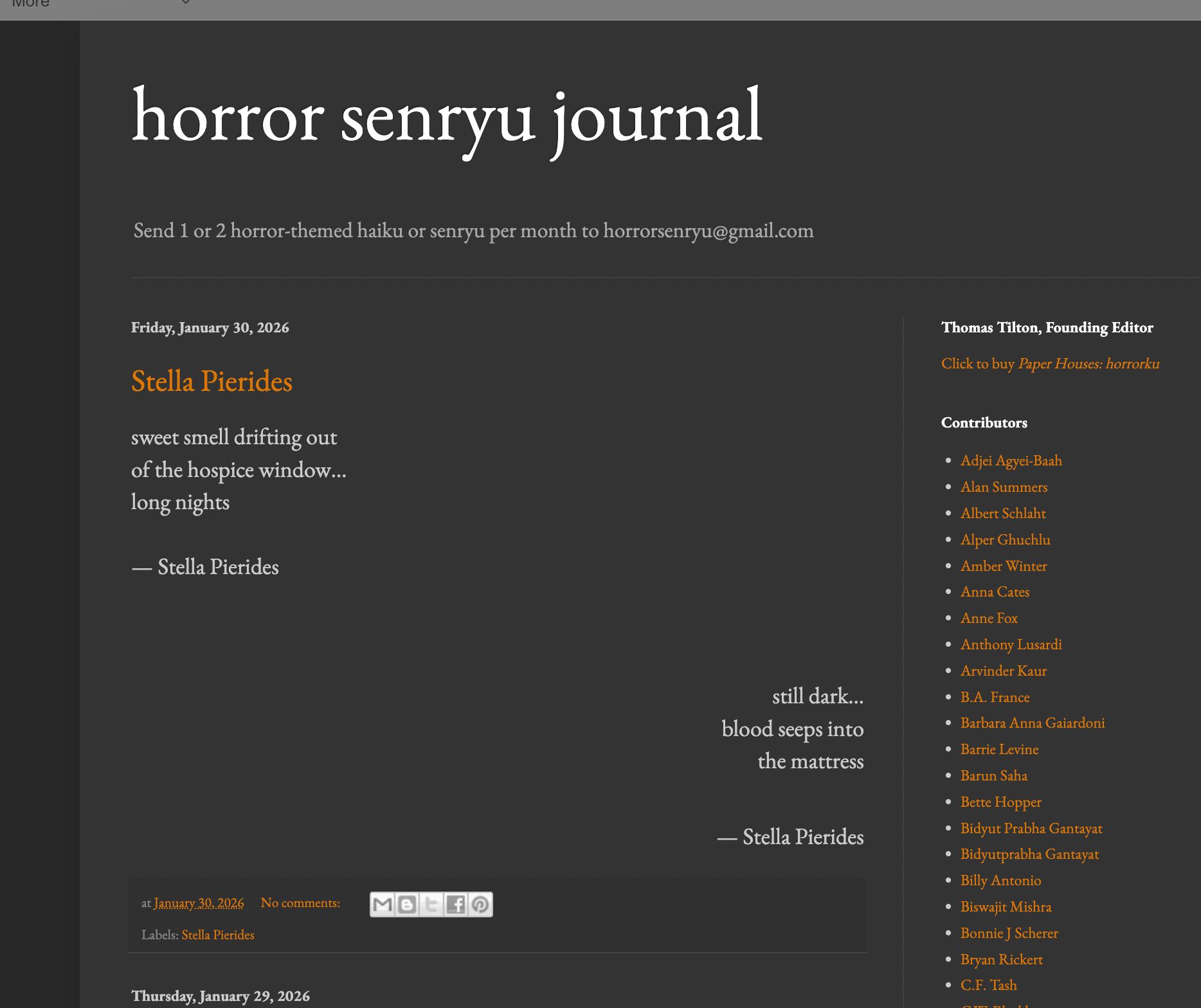
sweet smell drifting out
of the hospice window…
long nights
.
And
.
still dark…
blood seeps into
the mattress
.
In horror senryu journal, 30 January 2026
Many thanks to editor Thomas Tilton
Delighted to see three of my one line poems in The Other Bunny, 29 June 2026 (see one of the three poems included with image below)
Grateful thanks to editor Johannes S. H. Bjerg!
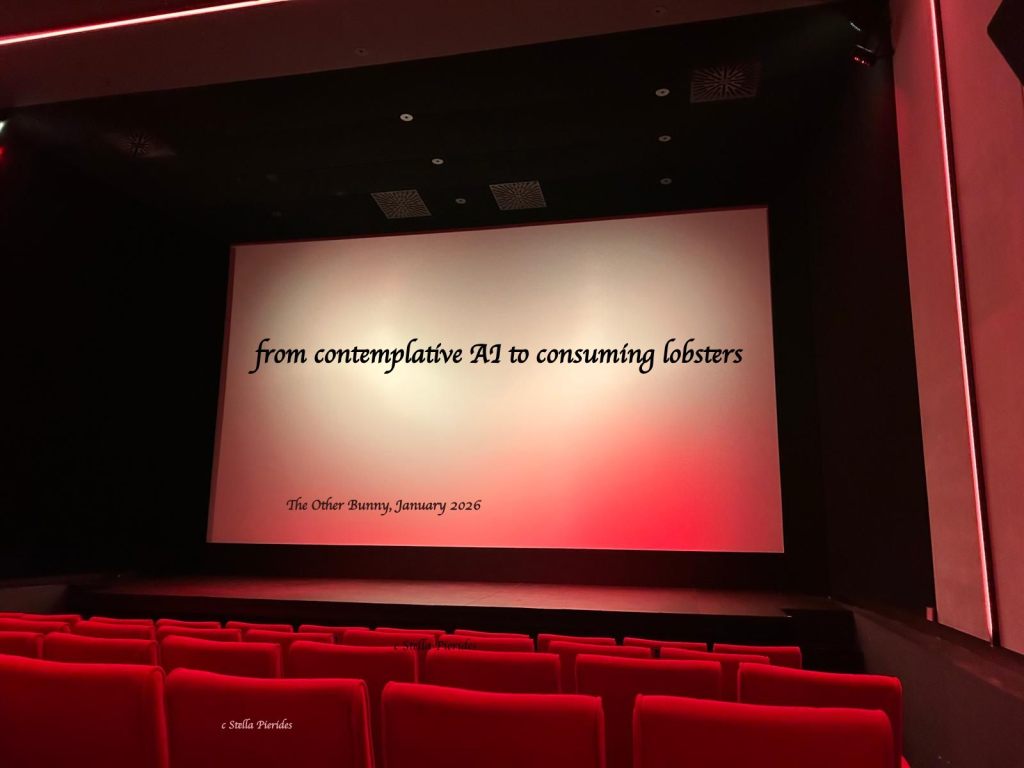
.
hushed sounds…
snowflakes soaking up
the light
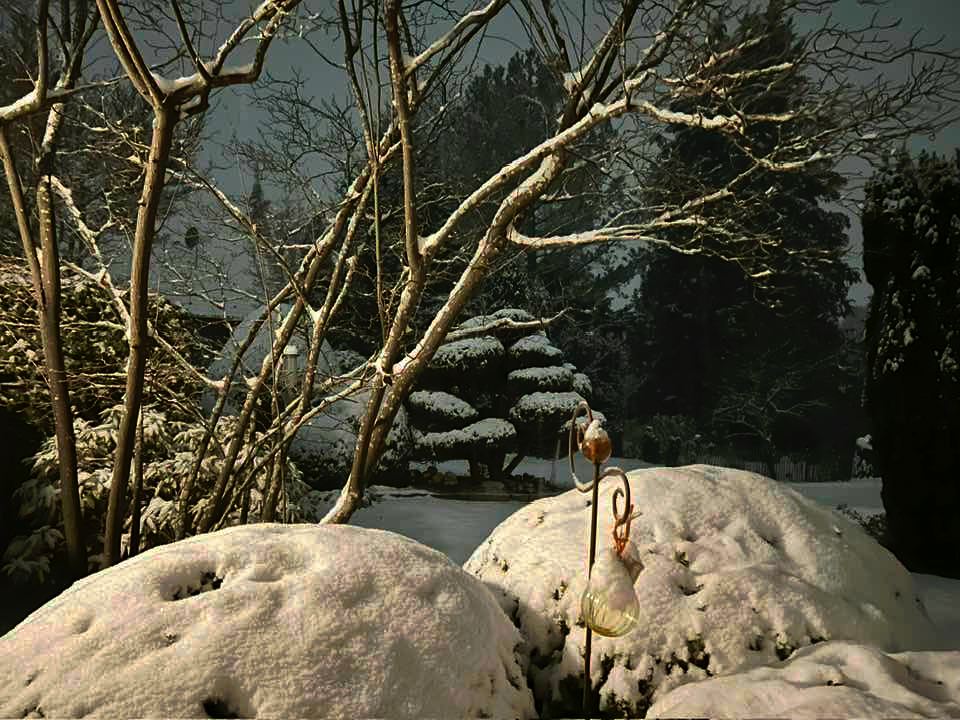
Delighted to appear in issue 3 of Flying Fish Haiku Journal! Many thanks to Editor Richa Sharma for including this poem:
end
of the line…
adult bib
It connects to earlier work on the same theme. In 2022, reflecting on the problems faced by persons living with PD, I wrote about the qualities of haiku that recommended it as a tool in the Parkinson’s toolbox.
Briefly, I saw haiku as a container or vessel into which one could pour “all kinds of experience—the beauty of sunsets and cherry blossoms, the exhilaration of climbing personal ‘mountains,’ but also the depth of loneliness, the pangs of pain, the embarrassment of acid reflux—and transform them, in a few words, into a manageable, livable experience”.
The three ‘adult bib’ haiku are attempting exactly that. Failing facial and throat muscles result in spilling drinks, dropping food and dribbling, becoming a daily cause of distress. The adult bib becomes an essential helpful piece of clothing, making life easy for the carers, but at the same time infantilizing the person wearing it. What does this mean? Has the person with Parkinson’s reached the end of the line?
end
of the line…
adult bib
The extent of humiliation is plain to see:
birthday present…
his adult bib embroidered
with ducks
However, the situation may be saved:
birthday meal
his Chef's Apron
sparkling white
“birthday present” and “birthday meal” both in CHO 20.2, “First-person reflections on the art of writing haibun”,
Today, the 4th of December, is Rainer Maria Rilke’s birthday. Honoring the poet, three biographies appeared in 2025, which I am about to read: Sandra Richter’s “Rilke or The Open Life”, Manfred Koch’s “Rilke – Poet of Anxiety” and Ruediger Shaper’s Rainer Maria Rilke: The Prophet of the Avant-Garde.
All three in the German Language. In the biogaphy by Manfred Koch, Rilke’s traumatic experiences are shown to be pivotal in forming his psychological make-up and artistic drive. Several reviews confirm that Koch presents Rilke’s anxieties not as much as an obstacle but as the very creative engine for his poetry.
Being interested in ways in which art and literature are utilized to cope with pain, and trauma, I will be reading eagerly…

Advent…
logs becoming flame
becoming heat
.
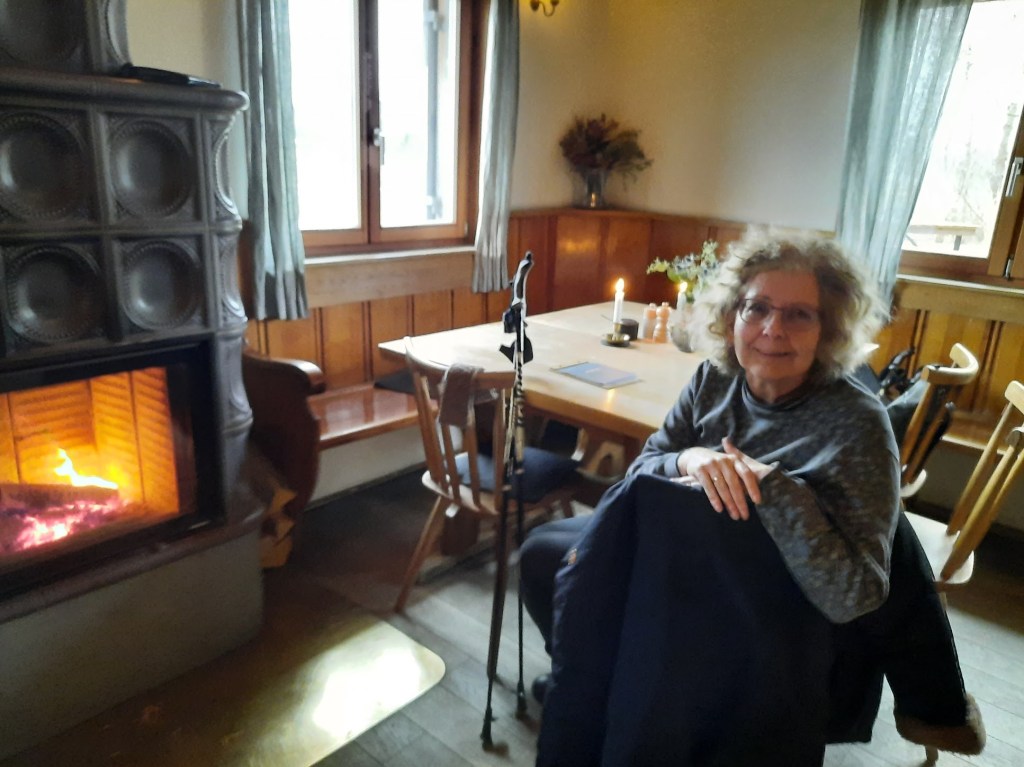
.
breaking through the grey…
rays of hope

time reflections
the quiet flow
of water
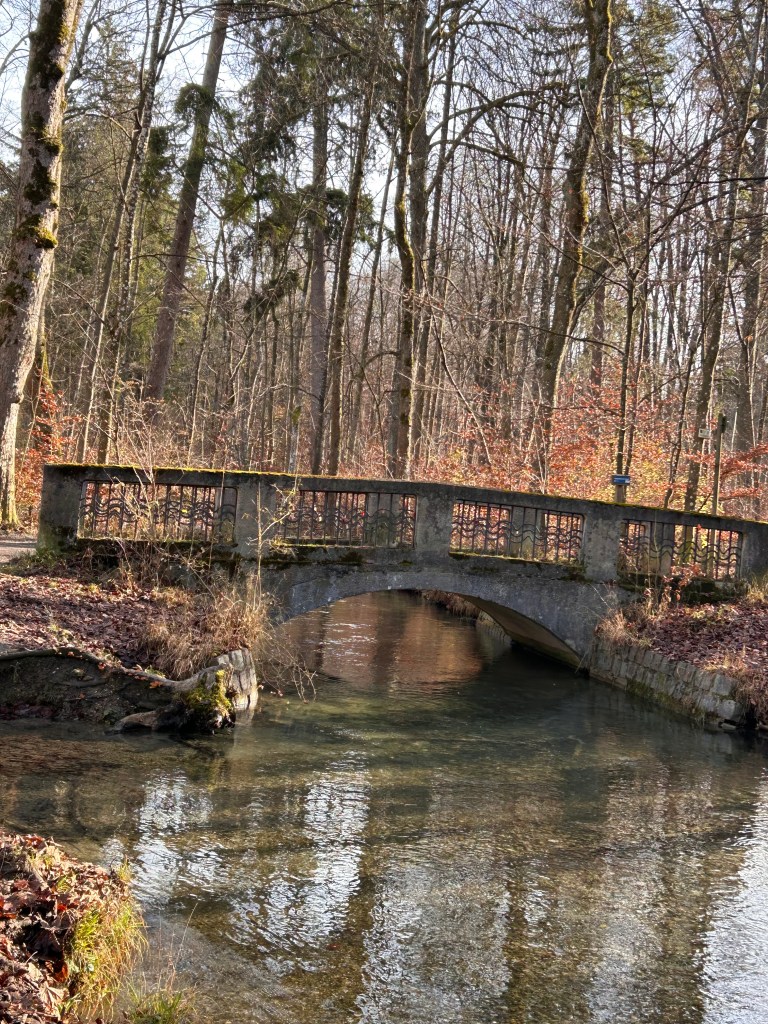
evening light ...
using AI to give it
warmth
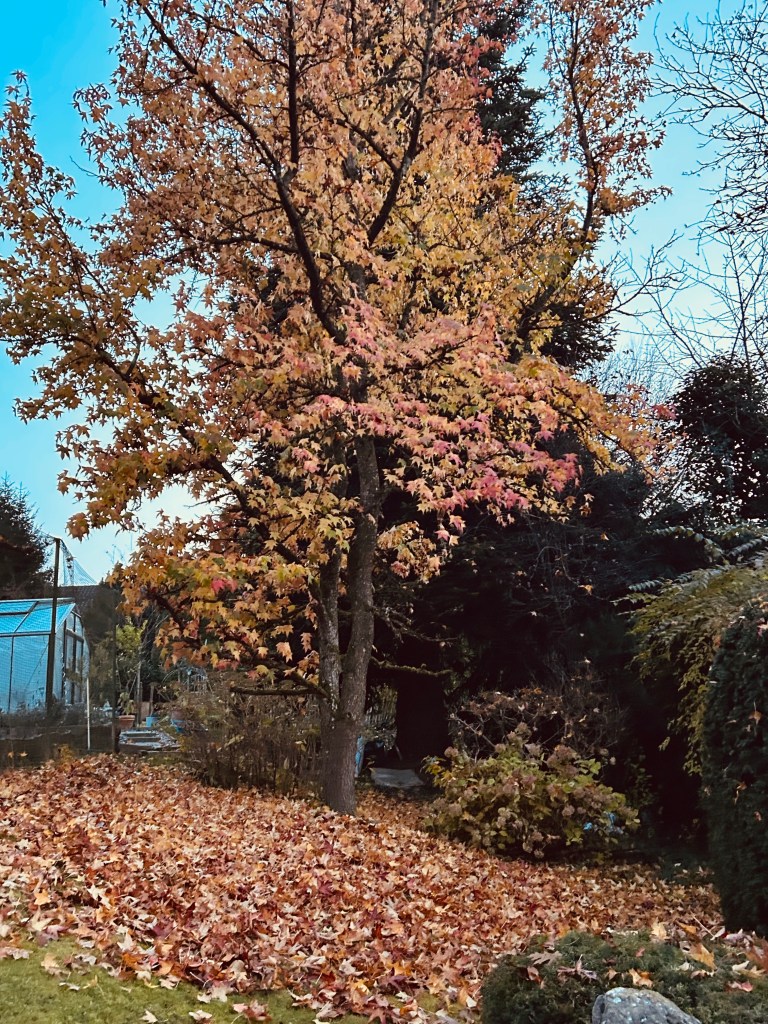
Interesting! After I posted the haiku, above, I checked AI for its opinion. AI came back with the following poem:
AI enhances the scene,
Evening light gains warmth and glow,
Human eye still guides.
In its poetic response, AI addressing the question about ownership in collaboration, tryies to reassure me about any concerns I might have regarding authorship. In the interplay between human creativity and AI enhancement, I am told, I still have the rights to my vision!
Yes, but for how long?
Honored and thrilled that my haiga series “Felt World” is featured this November 2025 at The Haiku Foundation website.
Haiga Galleries.
“Felt World in the title of this Gallery alludes both to the world as experienced through our senses and emotions, in the immediate, embodied understanding of it; and the world of those interested in felting, in transforming mainly wool fibres to the matted material referred to as felt, through a process involving heat, moisture, pressure, and elbow grease.
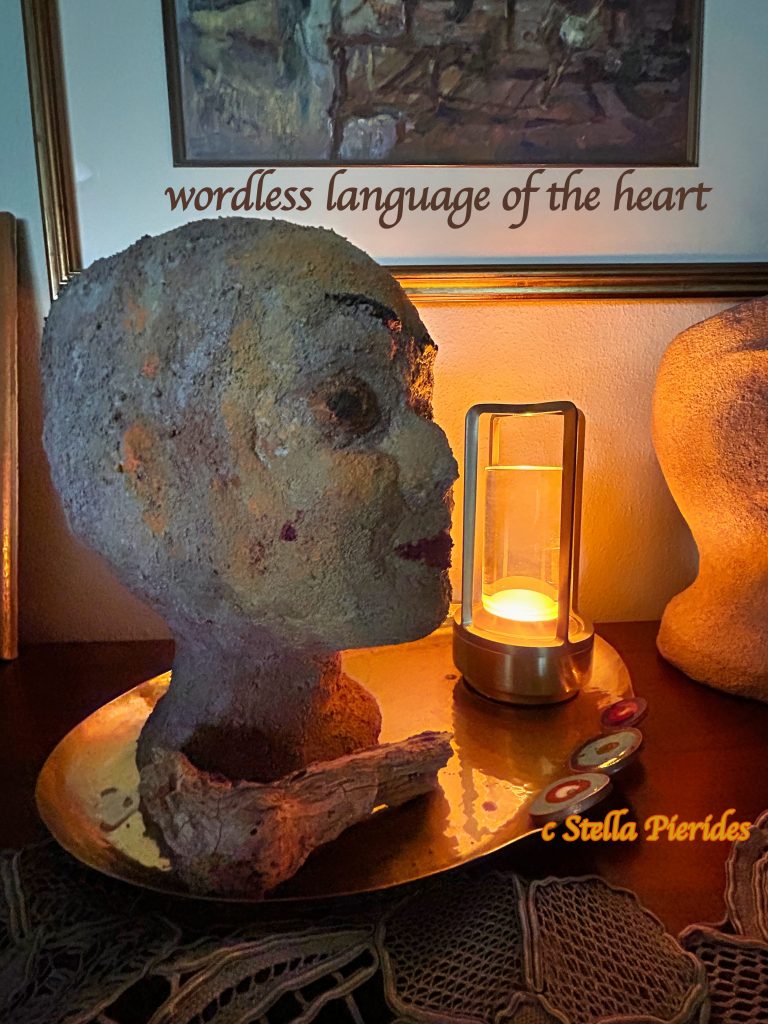
Take a look here
For background information on how I came to felting and haikufelting, you may find this essay interesting: Felting Haiga [or, Hairballs to Haiga: The Evolution of a New Hybrid, “Haikufelting” here
Lapping against
the walls of her dream
Venetian tide
.
Dream of St. Ursula
Vittore Carpaccio
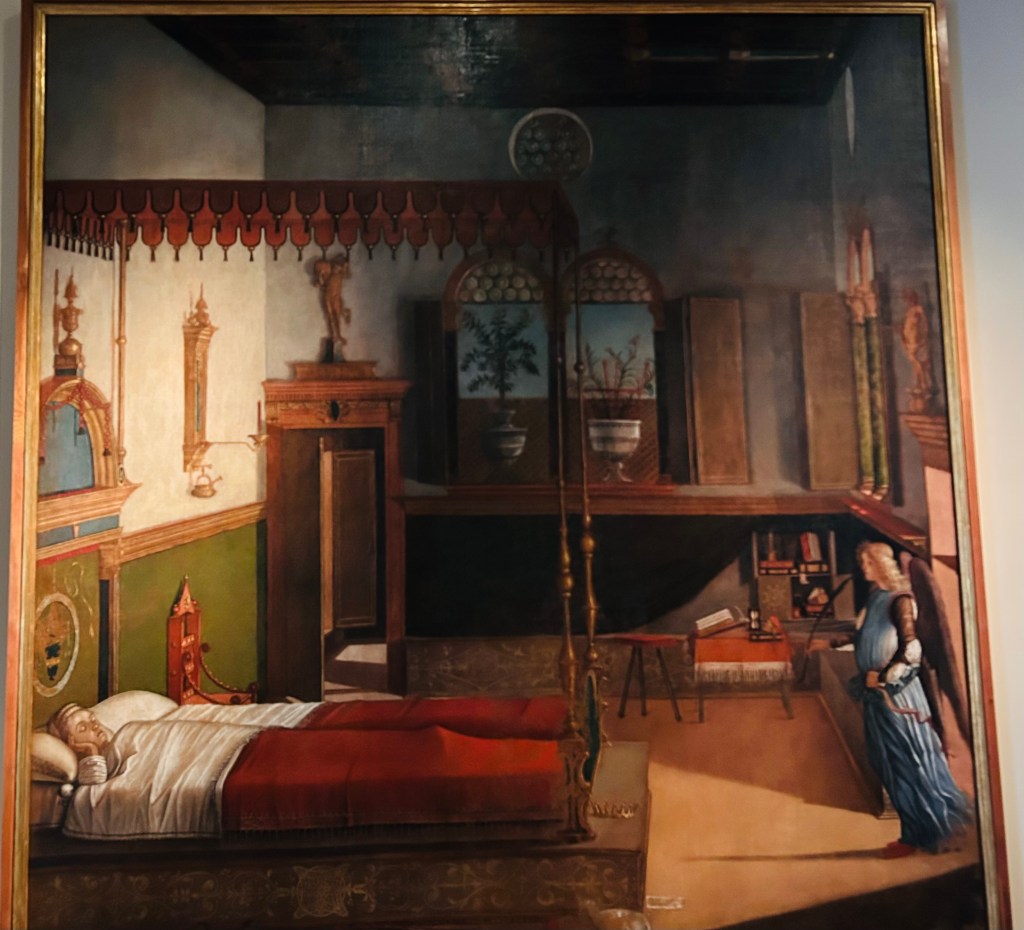
windy day…
letting go of the pain
of others
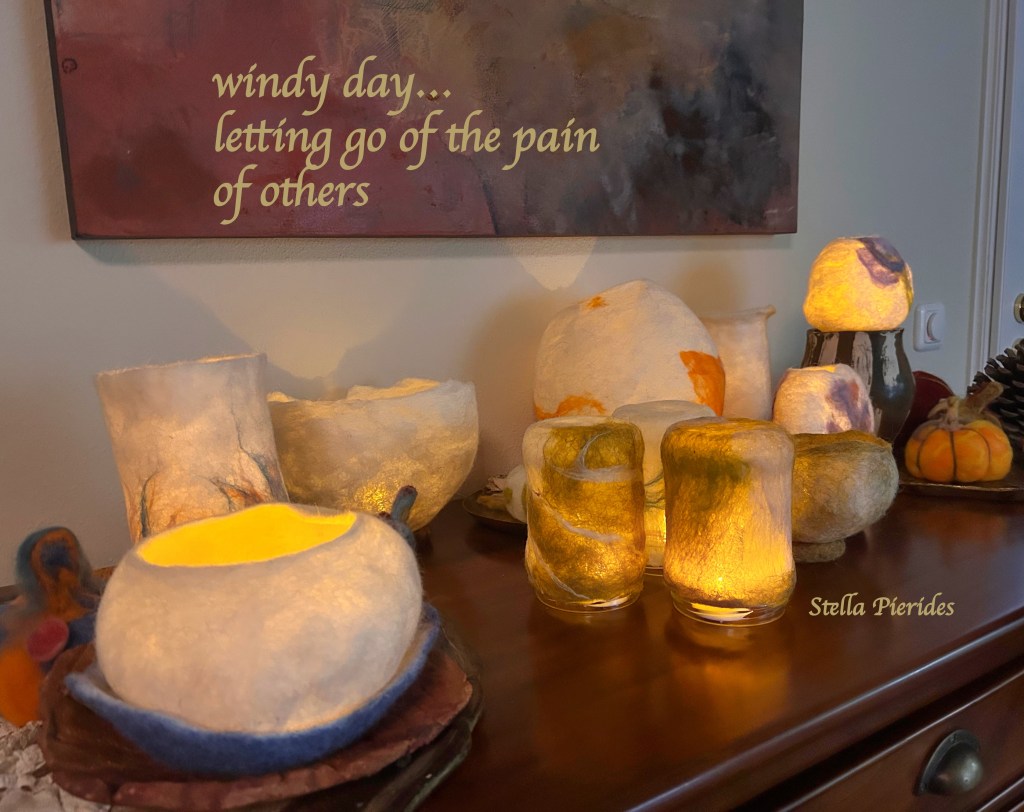
homeward bound
a sudden pull towards
the light

Brilliant! The new Haiku Foundation volunteer anthology 2025 is here! Co-editors Marta Chocilowska and Robert Kania, with the theme “back to childhood,” have produced a beautiful volume. Kick the Clouds is a must read!
![]() Shamelessly proud to be included! My poem appears on p. 75.
Shamelessly proud to be included! My poem appears on p. 75.
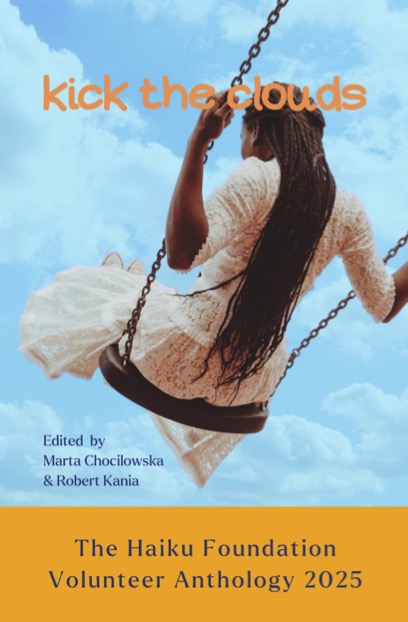
ripe seedhead
twisting and pulling
her milk teeth
Available to read online https://thehaikufoundation.org/thf-volunteer-anthologies/
or buy here Copies of the 2025 anthology can be ordered directly from Lulu:
Kick the Clouds
the buzzz
in the lavender field…
Gregorian chant
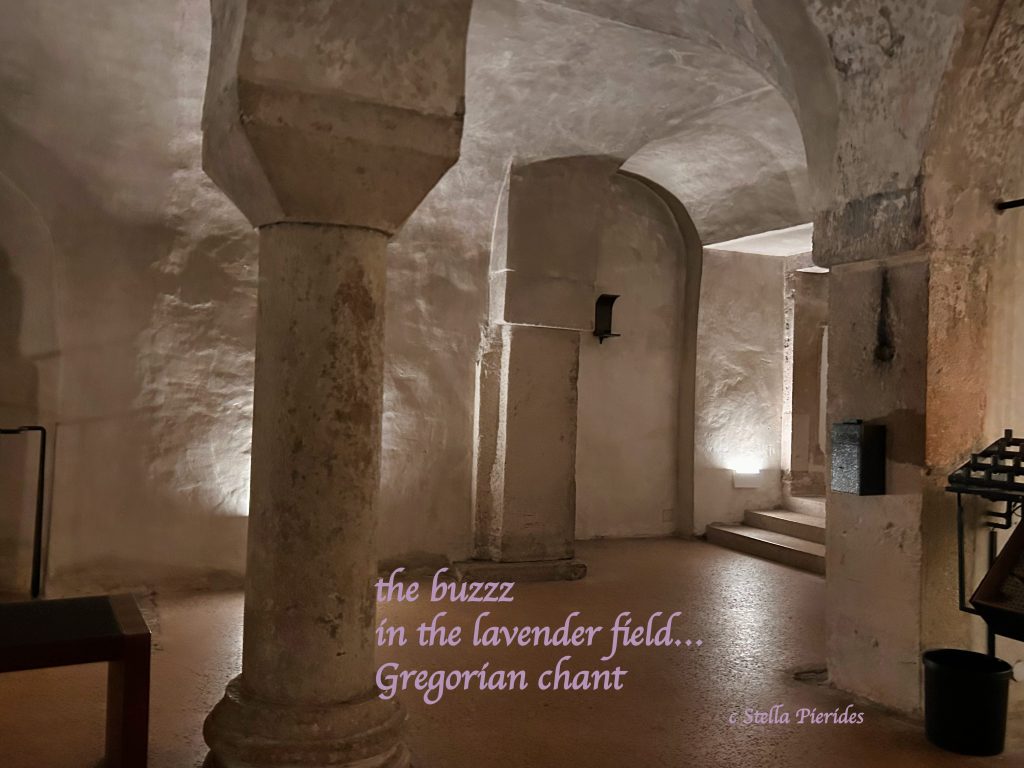
concrete head
my efforts to give it
a soul

Every Wednesday morning, seven of us serving the life sentence of Parkinson’s, tear through Mering Heath, in the south of Germany. Brushing against coarse grass and heather, stabbing the ground with our walking sticks, thrusting ourselves forward, we fill our lungs with the heather-scented air.
During today’s cooling-down session – swinging upper body left and right, extended arms loosely following, slowly catching our breath – the leader of our group relates the history of the place. In the 1700s, a building housing the Court of Justice stood exactly here by the Galgenbach, the Gallows stream. It was here that executions ordered by the Court were carried out. Crowds gathered, watched and cheered with the tightening of each noose, with each trap door opening. They watched the 15 minute-dance of the hanged, and then walked home.
hangman’s elm
the ancient tree creaks
and groans
.
In Blithe Spirit 35. 2 p. 70

immersion into light renunciation
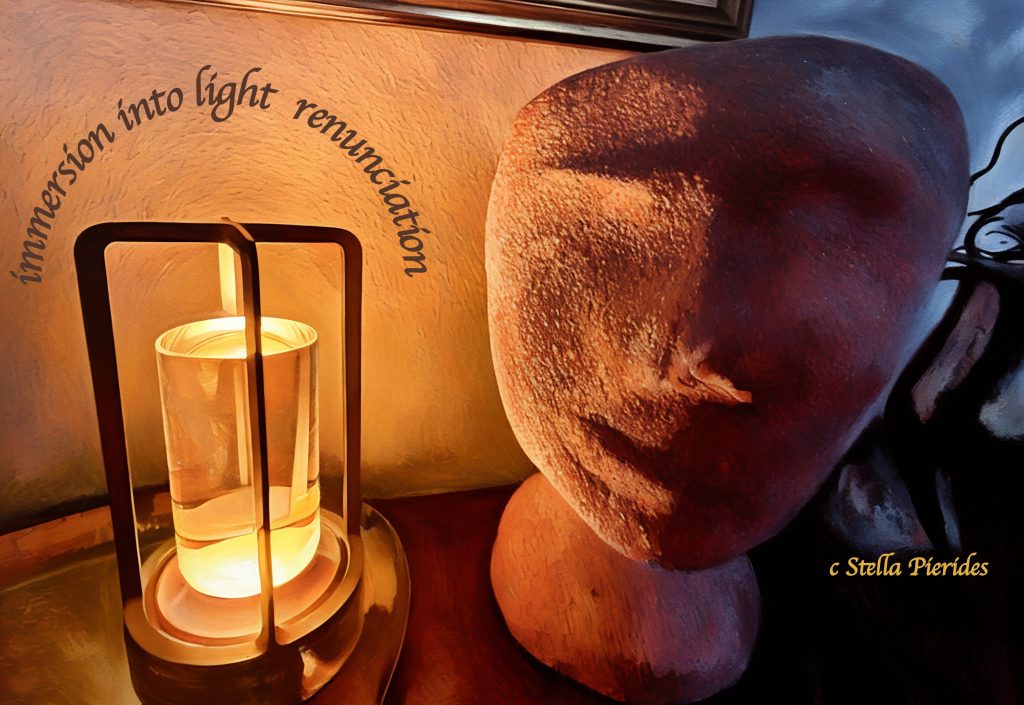
morning light
a scattering of birds
punctuates the sky

April is World #parkinson ’s Month! A month to increase awareness about this complex neurological disease, and support those impacted by it.

While scientists race to find a cure, there is a lot that can be done to help with quality of life.
Take a look at Parkinson’s Europe, the section on Self-help and Living Well:
https://parkinsonseurope.org/…/self-help-and-living-well/
The Davis Phinney Foundation is a good resource to explore: https://davisphinneyfoundation.org/resources/
The podcast series Two Parkies in a Pod offers advice and tips on how to cope with chronic illness, and the specific challenges of Parkinson’s: https://www.2parkiesinapod.com/
The Haiku Foundation year-long (2024-2025) series ‘Haiku for Parkinson’s’ features #haiku as a tool that may help calm, reframe problem(s), and generally improve the quality of life for those living with disease and the psychosocial entanglements it involves:
See, e.g., ‘My Dyskinesia’: https://thehaikufoundation.org/haiku-for-parkinsons-my…/
Interview of ‘Tim Roberts living with PD’: https://thehaikufoundation.org/haiku-for-parkinsons…/
‘From Haiku for Parkinson’s to Haiku for Healing’: https://thehaikufoundation.org/haiku-for-parkinsons-from…/
‘Through the Lens of Positive Psychology’: https://thehaikufoundation.org/haiku-for-parkinsons…/
And a song by Birdie Belgium, tribute to her mother who lives with Parkinson’s Disease: https://www.google.com/search?q=birdie%20belgium%20song…
https://parkinsonseurope.org/2025/04/07/birdie-belgium-releases-new-song-for-parkinsons/
What do I find helpful in my own journey of the disease? My family and friends; the ‘Betreutes Laufen‘ walking for Parkinson’s group in Augsburg, the Ping Pong Parkinson (PPP) group in Augsburg and the dedicated PPP Course in Koenigsbrunn (see also the nationwide PPP Association https://www.pingpongparkinson.de/); being part of the international online community, writing and reading haiku; felting, gardening…
wildflowers
the lightness of hope
and renewal
Happy to see 3 of my haiga included on pages 35 and 36 of the online Romanian Journal of contemporary art, Arta! See here
Grateful thanks to Andi Dumitrache for including them.

Camera obscura
For the last hour
My old poems
scaffolding for
her childhood memories…
first day of spring

returning ...
brushing against coarse grass
and heather

lunar eclipse …
when darkness makes us
visible
.
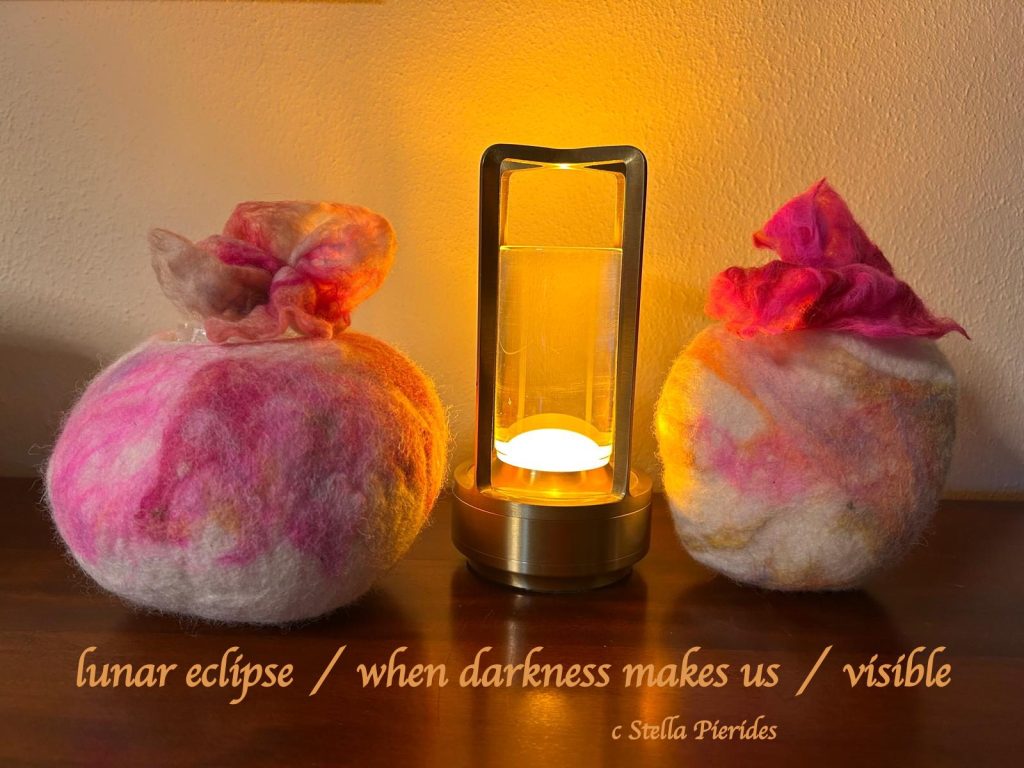
days growing longer...
painting over the brown leaves
with fresh green

Happy to share with you all the news of the forthcoming Kunsthandwerkermarkt in Neuburg an der Donau in which I am taking part. Eighth and ninth of March 2025, only one week away…I can’t wait!
The images below show some of the works I will be showing.

.
election day
the long queue of cars
to the flea market
.
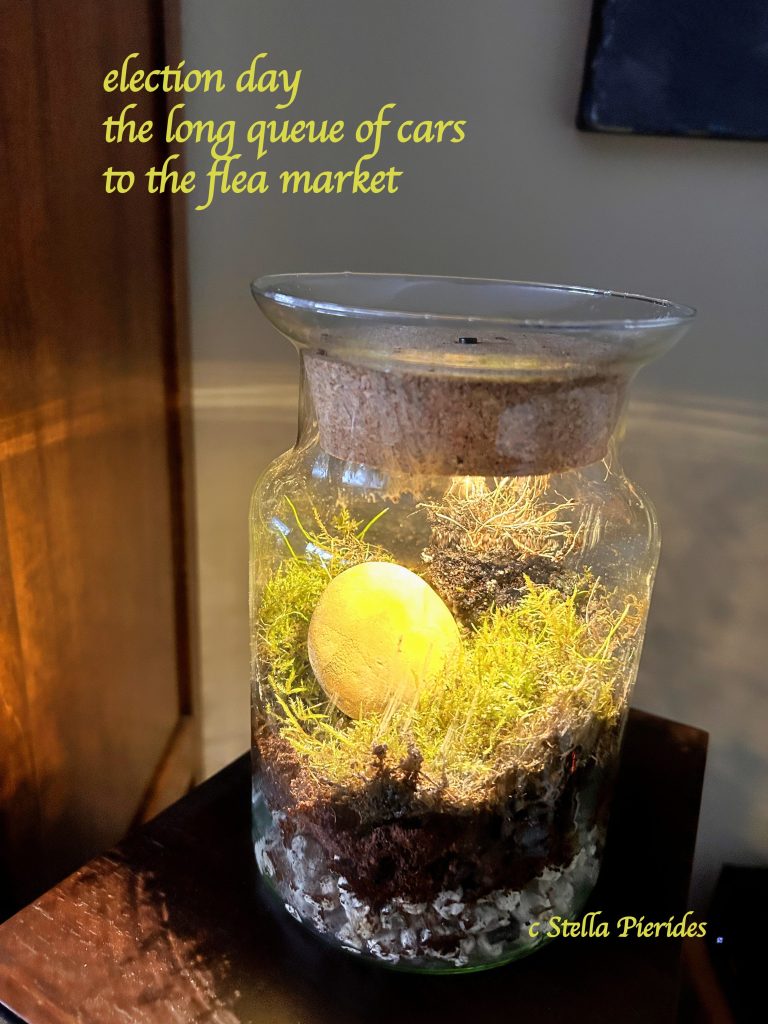
tectonic faults
cutting the puppeteer's
strings
